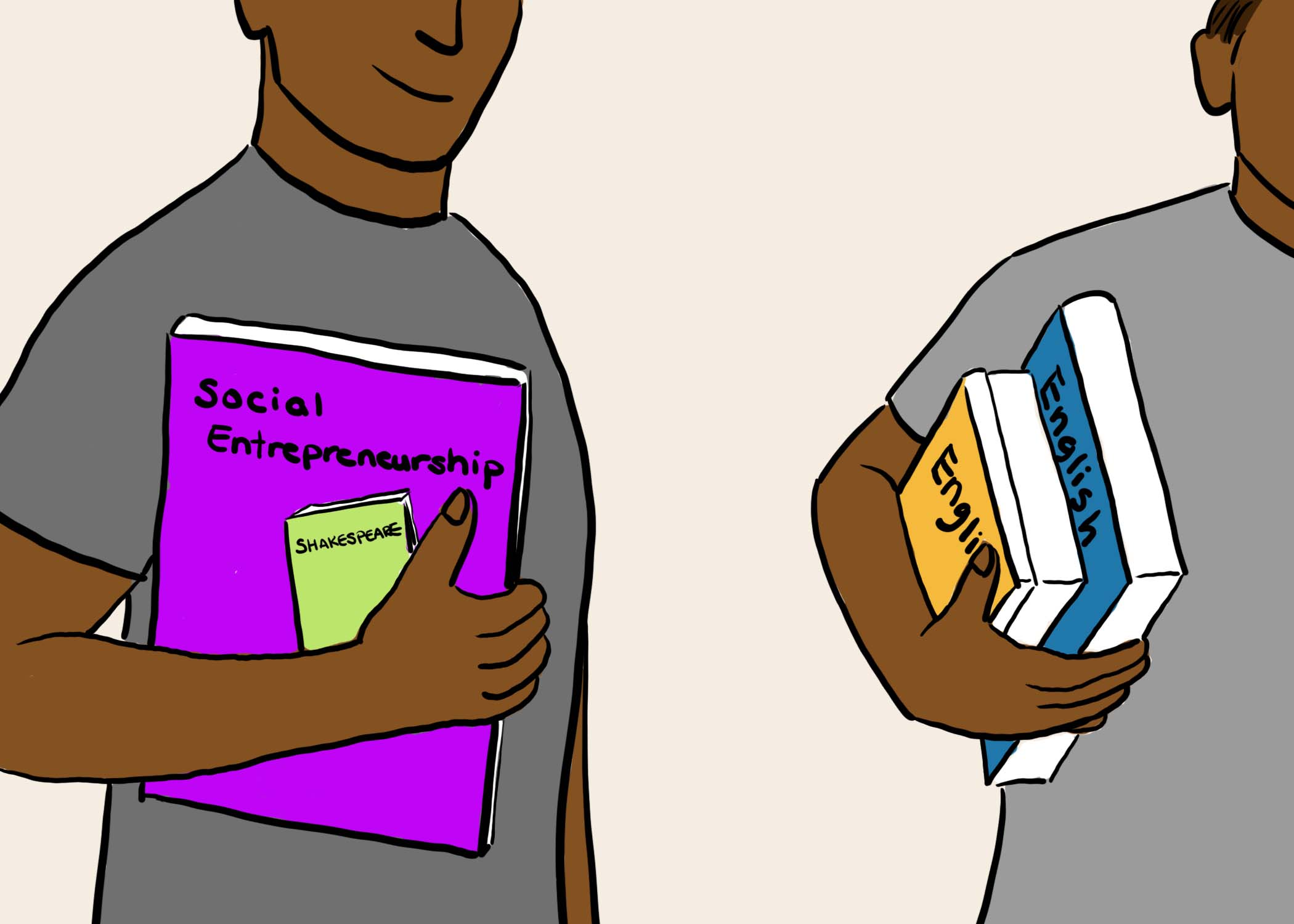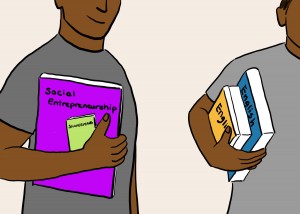Faculty of arts creates new options


Over the next two years, students will see at least three new options become available through the faculty of arts. The options – which fall between a major and a minor – act as specializations in emerging fields and will appear on a student’s transcript and degree.
The proposal for the social entrepreneurship option was officially approved at senate on March 3, setting the launch in motion for fall 2014.
“One of the really cool things about this is we’re trying to put together a program that prepares people to go out and make a real difference in the world,” said Michel Desjardins, associate dean, research and curriculum for the faculty of arts. “And to make a difference that will get them involved in some sort of entrepreneurial activity.”
Though offered by the faculty of arts, the option is open to all Laurier honours students. However, it is being specifically targeted to first and second-year students as the program is designed with four years worth of mandatory courses.
According to Desjardins, social entrepreneurship is a growing field in many universities across North America and Europe. Most of these programs, however, are being run out of business schools. This makes Laurier’s program the first in Canada grounded in the liberal arts.
“I see the heart of the university as this liberal arts base,” said Desjardins. “And so to start social entrepreneurship that way at Laurier makes a lot of sense, because it’s all about who we are and we can build off of the great strengths that business has.”
“We know that our strength still is to get people to think really strongly about issues and we’re not giving that up. But why not add to it a basic ability to understand business and more ability to understand ourselves?”
Moving forward, the department of global studies, which is hosting the option, will be looking to hire a new faculty member to drive the program. As well, their next step is to get the word out to students.
“Our challenge now is to get the message out to first and second-year students particularly and then to design a plan where we can reach out to high schools and start making people aware that this is available here at Laurier,” said Desjardins.
Desjardins explained that it’s their goal to eventually have social entrepreneurship be university-wide.
The community engagement option is also set to begin this fall. Desjardins described it as a kind of community service learning program “where people are learning about social justice, community and democracy.”
The digital humanities option is the third specialization the faculty of arts is looking to bring to students.
Though it has yet to be approved as an option, a digital humanities course will be offered next year.
David Smith, assistant professor of history, explained the premise around digital humanities.
“It’s using technology to help us understand the humanities better and using the humanities to help us understand technology better.”
They are hoping to have the option approved next year so it can be officially offered come fall 2015. Like social entrepreneurship, it’s being targeted at first and second-year students.
Smith outlined several reasons for the development of the option at Laurier, one being that faculty members are already engaged in research areas involving the digital humanities. It’s also a growing trend worldwide.
“The third thing is that we think it actually is very helpful for students, especially humanists to be prepared with these kinds of digital tools and digital skills for the job market and for post-graduate employment.”
Both Desjardins and Smith addressed the reason for the push by the faculty toward options.
Part of this, according to Desjardins, is that professors are recognizing a need for more engaged learning.
“Here’s the second reason: the reality is that if we want to introduce a new honours program or major into this university we have to get provincial approval.”
This, Desjardins continued, could take two to three years. An option can be developed more quickly.
The third reason is that they are recognizing that students are coming into the arts program with concerns about employability from their degree.
“We’re also trying to give students an opportunity to get out and expose themselves to a broader range of individuals outside the university and this will help them perhaps get employment later on.”


